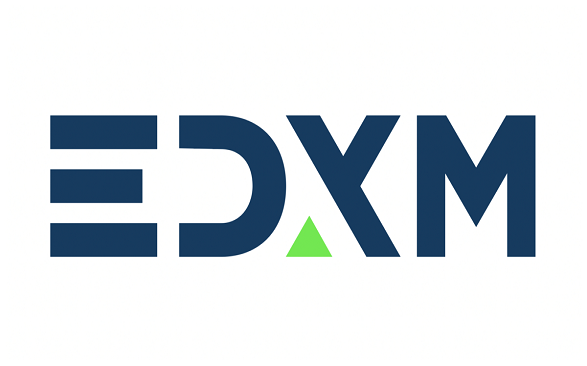Blockchain technology, best known as the foundation of cryptocurrencies such as bitcoin (BTC) and Ethereum (ETH), has great potential far beyond its initial application in finance. Notably, the driving force behind the decentralized ledger technology is its unique ability to provide transparency, immutability, and security. Over the past decade, the technology has proven to be quite beneficial, offering transformative solutions across a wide variety of industries. This article explores the practical use cases of blockchain technology beyond cryptocurrencies.
Blockchain beyond cryptocurrencies
While blockchain gained widespread recognition through cryptocurrencies, its potential extends far beyond the financial world. Let’s look at some of the industries harnessing this technology to transform their operations as well as those sectors that stand to benefit from adopting it.
1. Supply chain management
The term ‘supply chain’ refers to the network of organizations, people, activities, information, and resources involved in producing and delivering a product or service, from raw materials to the end customer. It encompasses the processes of sourcing, manufacturing, distribution, and logistics.
Blockchain technology has proven to be a game-changer in supply chain management, addressing critical issues such as transparency, efficiency and traceability. Traditionally, supply chains are complex networks involving multiple parties, often leading to communication breakdowns, fraud, or data manipulation.
With blockchain, every participant in the supply chain can access a shared, immutable ledger that tracks the journey of products from origin to destination. This level of visibility ensures that all stakeholders—from manufacturers and suppliers to retailers and consumers—have accurate information about the authenticity, location, and condition of goods.
Take, for example, IBM’s Food Trust platform, which uses blockchain to track food items from farm to table. This system enables producers and retailers to ensure food safety by tracing contamination sources in real time. Additionally, blockchain helps to combat fraud in industries like luxury goods and pharmaceuticals, where counterfeit products pose serious risks. By integrating blockchain into supply chains, companies can validate the authenticity of products, safeguard against tampering and enhance consumer trust.
Read also: What is Blockchain Technology? Meaning, Types, and Use Cases
2. Healthcare
In healthcare, blockchain offers solutions to one of the industry’s biggest challenges: securing sensitive patient data. Traditionally, medical records are stored in centralized databases or highly fragmented, making them vulnerable to breaches and hacking. Accordingly, blockchain introduces a decentralized system where medical records can be securely stored and shared only with authorized parties.
This decentralized approach eliminates the fragmentation of health records across various healthcare providers and allows for the secure sharing of patient information between healthcare providers without compromising their privacy. Each patient could have a blockchain-based ID, allowing healthcare providers access to their medical history in real-time, streamlining diagnosis and treatment, while ensuring privacy and security. This level of security can drastically reduce incidents of data breaches and identity theft, two critical issues in modern healthcare.
Moreover, blockchain is facilitating innovations in clinical trials and drug development. By storing clinical trial data on a transparent and immutable ledger, blockchain ensures that the data cannot be altered or falsified. This fosters trust among regulators, pharmaceutical companies, and patients, speeding up the approval process for new treatments and ensuring that patients receive effective medications backed by transparent clinical research. HealthGo, a Nigerian startup, presently applies blockchain to fractionalize healthcare costs and trace healthcare events.
On the whole, blockchain’s transparency and security ensure the integrity of medical records while reducing inefficiencies such as redundant tests and long administrative processes.
3. Voting systems or elections
Another groundbreaking use case for blockchain beyond cryptocurrencies is its application in voting systems. In traditional voting processes, concerns about voter fraud, tampering, and lack of transparency often arise. Blockchain, with its secure, immutable nature, presents a perfect solution. By creating a decentralized and transparent ledger, blockchain ensures that every vote cast is verifiable, traceable, and cannot be altered once recorded.
For instance, several countries, including Estonia, have started exploring blockchain-based voting systems. Voters are issued unique credentials, and their votes are securely stored in a distributed ledger, making it nearly impossible for malicious actors to tamper with election results. Blockchain voting also provides real-time auditing, allowing voters to confirm that their votes have been accurately counted without compromising their confidentiality and privacy. This could positively transform democratic processes by increasing voter confidence and eliminating the vulnerabilities associated with centralized voting systems.
Read also: What is Smart Contract and Its Use Cases?
4. Arts and entertainment
Blockchain is also transforming the protection and management of intellectual property (IP) in the arts and entertainment sector. In industries like music, art, and literature, creators often struggle with issues, including piracy, copyright infringement, and improper compensation for their work. With blockchain, creators can register their work, providing proof of ownership with an immutable timestamp. This ledger can be accessed globally, ensuring that creators maintain their rights across borders.
For example, music artists can tokenize their work using blockchain platforms, ensuring that every time their music is streamed, downloaded, or used in a commercial context, the transaction is recorded, and royalties are automatically distributed. Blockchain-based platforms like Audius are already implementing this model, allowing artists to earn more directly from their work without intermediaries taking a substantial cut. Similarly, in visual arts, blockchain is used to authenticate digital art pieces, providing proof of originality in an age where digital reproduction is rampant.
Read also: The rise and fall of NFTs: 96% of NFTs considered dead
5. Real estate
In real estate, blockchain is streamlining the processes of buying, selling, and managing property. Traditional real estate transactions often involve intermediaries, lengthy processes, and extensive paperwork. Blockchain simplifies this by enabling smart contracts, which are self-executing contracts where terms are directly written into code. These contracts automatically facilitate, verify, or enforce the agreement, reducing the need for third parties like lawyers or brokers.
Platforms like Propy and Redswan are already facilitating blockchain-based real-estate transactions. In Nigeria, HousingExhange.NG Ltd, a digital real estate investment platform offering tokenized properties, obtained an approval-in-principle from the Securities and Exchange Commission (SEC). Also, Sytemap, a Nigerian startup, hashes and saves land ownership as non-fungible tokens (NFTs), enabling the monitoring of landed properties from anywhere in the world.
Buyers and sellers can use smart contracts to transfer property titles securely and efficiently, saving time and costs related to legal fees and administrative work. Blockchain also ensures the integrity of land registries, preventing fraudulent claims or disputes over ownership. Moreover, fractional ownership of property becomes possible, allowing multiple investors to buy and trade shares of a real estate asset via tokenization.
Read also: Asset Tokenization as a Use Case of Blockchain Technology
6. Education
Blockchain technology offers transformative solutions to the academic sector, particularly in areas such as student record management, credential verification, intellectual property, and research grant or funding.
One of the most significant applications of blockchain in the education sector is in managing and verifying academic credentials. Traditionally, students’ degrees and transcripts are stored in centralized databases, making them vulnerable to forgery or manipulation. Blockchain technology provides a secure, immutable way to store academic records, allowing institutions to verify degrees instantly. It also enables schools to issue blockchain-based certificates that are easily shareable, verifiable, and tamper-proof.
Moreover, blockchain can streamline the management of student records across multiple institutions. Since students may transfer between schools or universities during their academic career, keeping an accurate, up-to-date record of their achievements and progress can be challenging. Blockchain offers a means where student records can be updated in real-time, accessible to different institutions while ensuring data integrity.
In academic research, blockchain can help safeguard the originality of research by timestamping data and providing a tamper-proof record of when a study was first developed or published. This helps researchers prove the ownership of their work, preventing disputes over intellectual property. Likewise, the technology can help increase the transparency and accountability of academic funding and research grants. It can be used to track how funds are distributed and utilized in research projects, ensuring that grants are allocated appropriately. By recording these transactions on an open ledger, stakeholders can trace every step of the funding process, reducing corruption, misuse of funds, and ensuring that research money is directed to where it’s most needed.
Challenges in Blockchain Technology Adoption
The use of blockchain technology involves some key challenges:
- Scalability: Blockchain technology is still struggling with scaling, which can limit its effectiveness in large-scale
- Interoperability: Different blockchain systems may not be able to communicate with one another seamlessly, leading to lower performance and inefficiencies.
- High Costs: Implementing and maintaining blockchain technology can be expensive, which may be a barrier for some companies.
- Regulatory Uncertainty: The legal and regulatory framework surrounding blockchain technology is still evolving and unclear in most jurisdictions, making it difficult for companies to navigate.
- Energy Consumption: Blockchain technology requires significant energy to operate, which can have environmental implications.
- Lack of Awareness and Understanding: Many companies may not fully understand the benefits and limitations of blockchain technology, making adoption slower.
- Complexity: Integrating blockchain technology with existing systems can be complex and time-consuming.
- Standardization: To some extent, blockchain technology still lacks standardization, making it difficult for companies to choose the right solution.
- Smart Contract Vulnerabilities: Errors or loopholes in smart contracts compromise security.
Read also: Beyond the Hype: Improving Usability of Web3 Applications Through Good UX Design
Conclusion
While blockchain gained widespread recognition through cryptocurrencies, its potential extends far beyond finance. At its core, blockchain is a decentralized ledger that records transactions in a way that is transparent, immutable, and secure. These characteristics have made it a promising solution for many industries facing challenges related to trust, efficiency, and data security. Accordingly, sectors ranging from supply chain and healthcare to real estate and education are harnessing the power of blockchain technology to transform their operations.
Read also: What is Web3? Understanding Its Ecosystem and Pros and Cons
Discover more from Crypto Asset Buyer
Subscribe to get the latest posts sent to your email.





